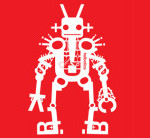At MLA 2015, to be held Jan. 8-11 in Vancouver, Canada, I wish to convene a Special Session panel that interrogates how distributed networks of human and non-human agents disclose new dimensions of “authenticity.”
Referring to the material substrate that “authenticates” data “integrity” and also to the identity performances such data manifests, this panel seeks talks that explore how medial form, coterie performance, literary output and digital forensics collaborate with and sometimes “corrupt” each other.
I particularly welcome papers from scholars who may not be working with digital art as their primary texts nor identify as “digital humanists,” but whose research works in tandem or productive tension with ideas in this call.
Originating in court intrigues, coterie texts have always been “encoded”: a surface story unlocks greater meaning for those who can decrypt its signs. As communities of literary practice, coteries evolve a private language that may or may not tell itself in literary “output,” and craft rules of participation that police who’s in and who’s out.
Rebecca Sutton Koeser and Brian Croxall’s “Networking the Belfast Group” reveals some ways in which databases can defamiliarize received histories of coterie practice. Using automated semantic enhancement of digitized letters and poems, Sutton Koeser and Croxall note in their preliminary results: “[I]t becomes apparent that literary histories often underrepresent those who might be considered part of the Group. Women such as Marie Heaney and Edna Longley, who played a more supporting role in the Group, and the poet Medbh McGuckian, who did not participate in the Group at all, are ultimately central to the network surrounding it.”
The distributed aesthetics of a Netprov, a bot performance, a hybrid classroom, a set of mobile stories pinned to (psycho)geographic location, text messages projected ephemerally onto public space: all of these prompt new reception practices that adjudicate between database and human capacities for memory and association. “Arts practices that are participative and discursive, multimodal, multiplatform and multi-sited exceed the performative,” Rita Raley suggests. Individually, such works are “really only intuitively legible under the rubric of ‘project’ itself. A project, however, is singular whereas a practice is reiterative. It functions within a certain material structure that is sharable and translatable to different contexts, and it is that structure that is available to critical scrutiny” (10).
“Sites of memory can be lost and, sometimes, partially remembered according to nonlinear temporalities,” Margaret Ferguson writes in “Negotiating Sites Of Memory,” the 2015 MLA Presidential Theme. In an article I’m writing about a fiction installed and read in Twitter, I’m struck by how its archive of Tweets deforms or misrepresents the live experience. The enduring “memory” of this fiction’s installation is utterly unlike itself.
“The preservation of digital objects is logically inseparable from the act of their creation,” declares Matthew Kirschenbaum. “[T]he cycle between creation and preservation effectively collapses because a digital object may only ever be said to be preserved if it is accessible, and each individual access creates the object anew” (60, emphasis Kirschenbaum’s).
What is “authenticity” in these contexts?
Send 300-word abstracts and a short bio to kathiberens at gmail dot comalong by 15 March.
WORKS CITED
Ferguson, Margaret. “2015 Presidential Theme: Negotiating Sites of Memory.” Modern Language Association Convention website accessed 17 February 2014.
Kirschenbaum, Matthew. “The .TXTual Condition,” in Comparative Textual Media, eds. N. Katherine Hayles and Jessica Pressman. University of Minnesota Press. 2013.
Koeser, Rebecca Sutton and Brian Croxall. “Networking the Belfast Group through the Automated Semantic Enhancement of Existing Digital Content.” Journal of Digital Humanities, 2:3 (Summer 2013).
Raley, Rita. “TXTual Practice,” in Comparative Textual Media, eds. N. Katherine Hayles and Jessica Pressman. University of Minnesota Press. 2013.
Yule, Jonathan. “Helbotica.” Jonathan Yule Graphic Design website accessed 17 February 2014. Hat tip to Leonardo Flores’s I ♥ E-Poetry (linked to in text of call), where I first saw Mr. Yule’s illustration.






Pingback: Books are Falling Apart – MLA Call for Papers in Digital Humanities